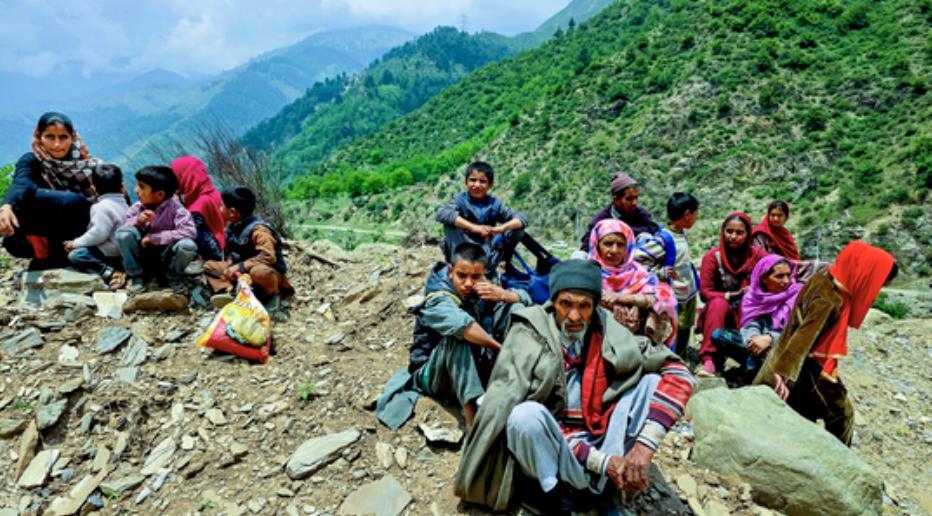
Can’t Trust Pak: J&K Residents on Returning Home after Ceasefire
The recent India-Pakistan ceasefire along the Line of Control (LoC) in Jammu and Kashmir has brought a sense of relief to the conflict-ridden region. However, the residents of the border areas are still hesitant to return to their homes, citing a lack of trust in Pakistan’s commitment to maintaining peace.
The spate of violence that erupted along the LoC in recent weeks saw heavy shelling in several areas, including Jammu, Poonch, and Rajouri. The ceasefire agreement, which came into effect on February 25, has brought a temporary silence to the border, but the residents are wary of returning to their daily lives.
“I am desperate to go to my village because I can’t open my shop,” said a resident of a border district, who wished to remain anonymous. “But people still believe the war isn’t over. They think Pakistan can start shelling again at any moment.”
The resident’s sentiments were echoed by many others who have been displaced by the violence. Despite the ceasefire, the fear of another outbreak of violence remains palpable, making it difficult for people to return to their homes.
The Indian government’s Operation Sindoor, launched on February 22, was aimed at evacuating thousands of civilians from the border areas to safer zones. While the operation has been successful in evacuating many, there are still thousands of people who are stuck in their homes, unable to return due to the fear of Pakistani shelling.
The residents of Jammu and Kashmir are not alone in their concerns. The Pakistan military has been accused of violating the ceasefire agreement on several occasions, causing civilian casualties and damage to property.
According to a report by the Pakistan-based Human Rights Commission of Pakistan, the Pakistani military has been responsible for the majority of ceasefire violations along the LoC in recent years. The report accused Pakistan of using “indiscriminate” and “unprovoked” fire against Indian positions, resulting in the deaths of several civilians.
The Indian government has repeatedly accused Pakistan of supporting terrorism in Jammu and Kashmir, and has called for an end to cross-border terrorism. The recent violence along the LoC has further strained relations between the two countries, making it difficult for tensions to ease.
The residents of Jammu and Kashmir are caught in the middle of the conflict, and are paying the price for the animosity between India and Pakistan. The lack of trust in Pakistan’s commitment to maintaining peace is a major factor in their reluctance to return to their homes.
“I have lost my business, my shop, and my livelihood,” said another resident of a border district. “But I am not going back to my village until the war is over. I can’t risk my life and the life of my family.”
The residents’ concerns are not unfounded. The Pakistani military has a history of violating ceasefire agreements, and the residents of Jammu and Kashmir are well aware of the risks involved.
In recent years, there have been several instances of Pakistani shelling along the LoC, resulting in civilian casualties and damage to property. The residents of Jammu and Kashmir have been forced to live in fear of the next attack, and the lack of trust in Pakistan’s commitment to maintaining peace is a major factor in their reluctance to return to their homes.
The Indian government has promised to provide support to the residents of Jammu and Kashmir, including financial assistance and rehabilitation packages. However, the residents are skeptical about the government’s ability to provide them with the necessary support.
“We have been promised compensation, but we have yet to receive any,” said a resident of a border district. “We need the government to take concrete steps to ensure our safety and well-being.”
The residents of Jammu and Kashmir are not alone in their struggles. The conflict between India and Pakistan has been ongoing for decades, and the residents of the region have been caught in the middle.
The recent ceasefire agreement has brought a sense of relief to the region, but the residents are still wary of returning to their homes. The lack of trust in Pakistan’s commitment to maintaining peace is a major factor in their reluctance to return, and the Indian government must take concrete steps to ensure the residents’ safety and well-being.






